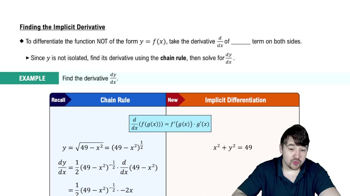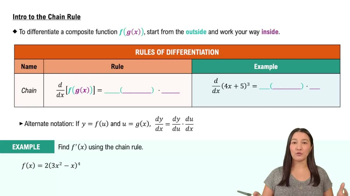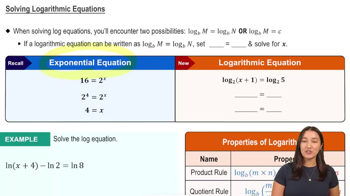The following equations implicitly define one or more functions.
b. Solve the given equation for y to identify the implicitly defined functions y=f₁(x), y = f₂(x), ….
y² = x²(4 − x) / 4 + x (right strophoid)
 Verified step by step guidance
Verified step by step guidance Verified video answer for a similar problem:
Verified video answer for a similar problem:



 5:14m
5:14mMaster Finding The Implicit Derivative with a bite sized video explanation from Patrick
Start learning